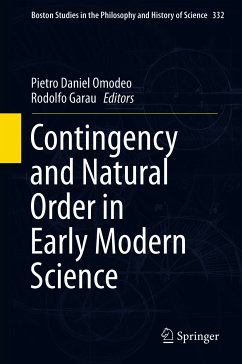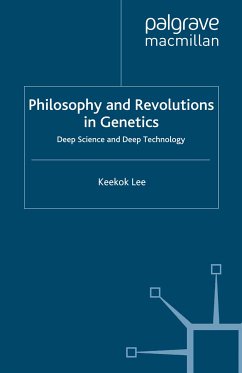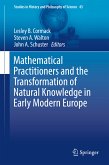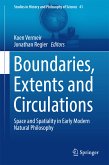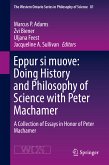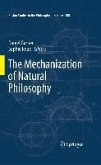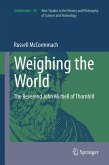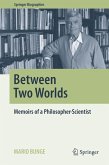This volume considers contingency as a historical category resulting from the combination of various intellectual elements - epistemological, philosophical, material, as well as theological and, broadly speaking, intellectual. With contributions ranging from fields as diverse as the histories of physics, astronomy, astrology, medicine, mechanics, physiology, and natural philosophy, it explores the transformation of the notion of contingency across the late-medieval, Renaissance, and the early modern period. Underpinned by a necessitated vision of nature, seventeenth century mechanism widely identified apparent natural irregularities with the epistemological limits of a certain explanatory framework. However, this picture was preceded by, and in fact emerged from, a widespread characterization of contingency as an ontological trait of nature, typical of late-Scholastic and Renaissance science. On these bases, this volume shows how epistemological categories, which are preconditions of knowledge as "historically-situated a priori" and, seemingly, self-evident, are ultimately rooted in time.
Contingency is intrinsic to scientific practice. Whether observing the behaviour of a photon, diagnosing a patient, or calculating the orbit of a distant planet, scientists face the unavoidable challenge of dealing with data that differ from their models and expectations. However, epistemological categories are not fixed in time. Indeed, there is something fundamentally different in the way an Aristotelian natural philosopher defined a wonder or a "monstrous" birth as "contingent", a modern scientist defines the unexpected result of an experiment, and a quantum physicist the behavior of a photon. Although to each inquirer these instances appeared self-evidently contingent, each also employs the concept differently.
Dieser Download kann aus rechtlichen Gründen nur mit Rechnungsadresse in A, B, BG, CY, CZ, D, DK, EW, E, FIN, F, GR, HR, H, IRL, I, LT, L, LR, M, NL, PL, P, R, S, SLO, SK ausgeliefert werden.

